May 30, 2025 | 04:50 GMT +7
May 30, 2025 | 04:50 GMT +7
Hotline: 0913.378.918
May 30, 2025 | 04:50 GMT +7
Hotline: 0913.378.918

Mr. Dang Phuc Nguyen, General Secretary of the Vietnam Fruit and Vegetable Association (VinaFruit) sharing about the situation of fruit and vegetable exportation to the Chinese market.
Analisis on the monthly export turnover in the first seven months of 2021 has shown that exports to the Chinese market are on a downward trend. From May 2021, the turnover has continuously decreased with an average rate of 15% per month.
As stated by the General Secretary of VinaFruit, the reason lies in the serious impact of the Covid-19 epidemic, forcing Vietnam to apply the strongest prevention measures, making the production and circulation of goods difficult, disrupting the supply chain of goods exported to the Chinese market.
In addition, due to the fact that eight Vietnamese fruit and vegetable products have been officially exported at border gates without having signed an official protocol on plant quarantine with China in the past, from May 2021, China has applied stricter fruit and vegetable quarantine than before (almost 100% of consignments) at China’s land border gates. This move has caused deliveries to be prolonged and delayed, leaving trucks stagnant at border gates for a long time.
“Unlike before, a refrigerated truck carrying dragon fruits from the Vietnamese border to Guangxi province only took 2-3 days, now it takes more than a week, causing transportation costs to be doubled (from VND 50 million/truck to more than VND 100 million). This has resulted in a shortage of vehicles to return to load goods, followed by an increase in commodity prices, making it difficult to compete with goods from China and other countries”, said Mr. Dang Phuc Nguyen.
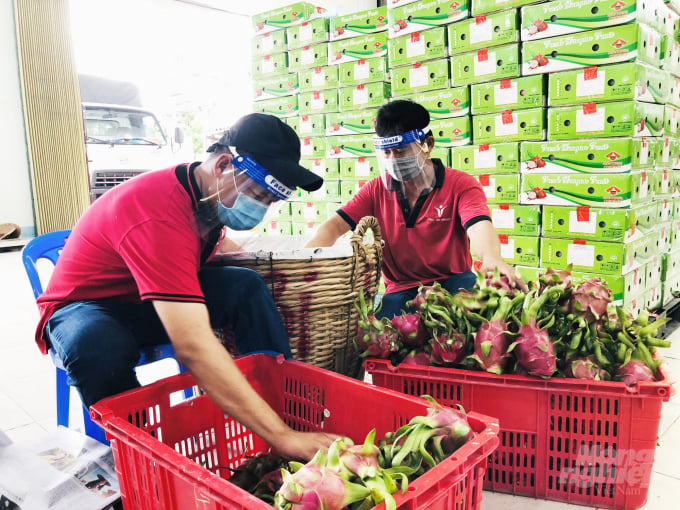
Exportation of dragon fruit (especially red-fleshed dragon fruit) to the Chinese market is facing difficulties.
However, vegetables exported to China by sea are not faced with such problems at Chinese entry ports. The only problem that container goods are facing is the lack of refrigerated containers, high freight rates and stricter quarantine at Vietnamese ports (such as the port of Ho Chi Minh City).
According to Mr. Dang Phuc Nguyen, dragon fruit as well as other commodities such as bananas, mangoes, longans... are currently facing difficulties when exporting to China due to the coincidence with Chinese seasonal crops. At the moment Chinese farmers are rapidly increasing planting areas and improving product quality, especially for red-fleshed dragon fruit and longan, so Vietnam’s selling price of these products has dropped.
Moreover, many companies in China have invested in planting similar products in Thailand, Cambodia, Laos..., acquiring products of good quality and design, so they prioritize bringing the invested output to China for consumption, creating competition with Vietnamese goods.
Therefore, Chinese merchants make little to zero profit when importing and selling goods from Vietnam, not to mention the presently high freight rates, long customs clearance time, reduced quality…
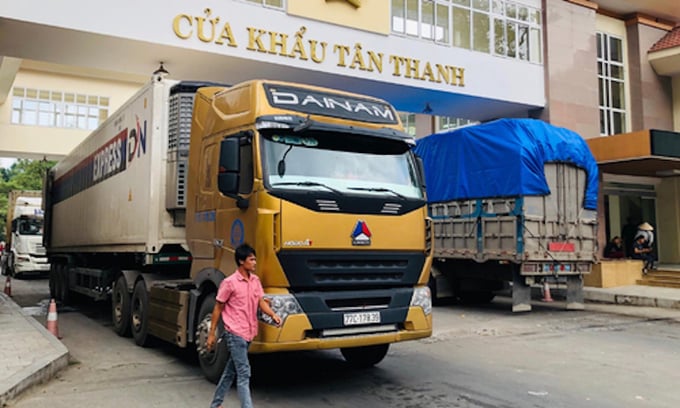
Arisen procedures waste time and money, increase agricultural products’ transportation costs.
Grasping the present situation, Mr. Dang Phuc Nguyen has proposed a number of short-term and long-term solutions for the incoming period.
Regarding short-term solutions, it is necessary to create favorable conditions for means of transport to relieve the congestion of merchandise from production areas to consumption points, warehouses, factories, processing and production facilities; make deliveries to docks and seaports for export.
At the same time, travel permits should be quickly and conveniently issued for employees and workers at concentrated fruit and vegetable packing factories, along with officials and employees carrying out the procedures for importing and exporting goods at ports and border gates…
As for long-term solutions, Mr. Dang Phuc Nguyen said that it is essential to soon organize negotiations to sign a protocol on plant quarantine with China for the eight official export fruit products so as to help reduce vehicles’ waiting time for customs clearance, reduce road transport costs, improve vehicle's return time to meet output will increase after the Covid-19 pandemic has been controlled.
At the same time, production from raw materials should be organized in compliance with the planning, having the scale and growth rate adjusted accordingly. Do not increase the output of vegetables and fruits with abundant supply sources in the Chinese market.
Production should also be directed according to market demand, ensuring that the produced goods are suitable to the tastes of Chinese consumers (VietGap standards...), increase off-season production with Chinese domestic goods.
“Product quality must gradually improve in terms of varieties, food hygiene and safety to compete with products from surrounding countries and inland China because they are also increasingly improving their product’s quality and price to keep the market share”, said the Vinafruit General Secretary.
Translated by Samuel Pham
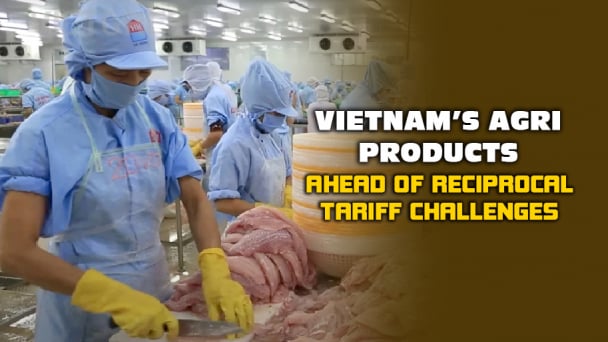
(VAN) Reciprocal tariffs are exerting pressure on U.S. exports, prompting Vietnamese firms to shift their focus to Muslim markets, Thailand, and Brazil.
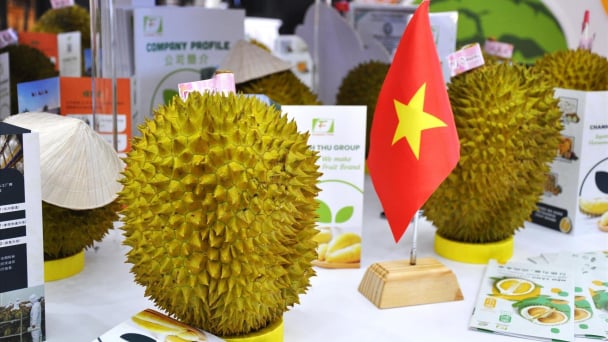
(VAN) A free booth for two years at Xinfadi, Beijing's largest wholesale market, will be allocated to Vietnam's agricultural products.
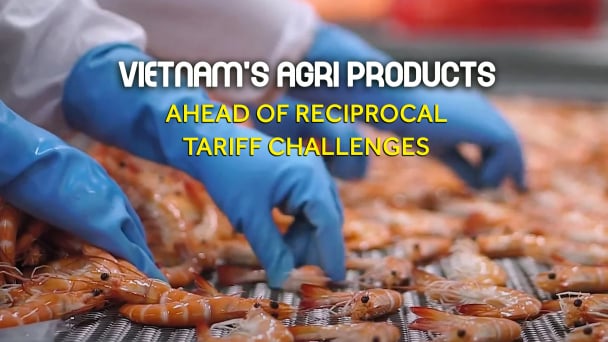
(VAN) Vietnamese shrimp exporters are actively looking for alternative markets and accelerating shipments to the United States in response to the pressure of impending reciprocal tariffs. This is occurring during a temporary tariff suspension.

(VAN) The import-export turnover between Vietnam and Singapore rose amid a trade rebound, with machinery, electrical equipment, and fuels making up the majority of the transaction value.

(VAN) Director General of the General Administration of Customs of China, Ms. Sun Mai Jun, has pledged to implement measures that will ease the import process for Vietnamese agricultural products.

(VAN) Although Vietnam is still increasing its coffee exports, the industry is currently in the process of determining market strategies in response to the U.S. imposition of reciprocal tariffs.

(VAN) With rising demand in Muslim-majority countries, Halal certification is becoming a critical passport for Vietnamese agricultural products seeking sustainable market access and consumer trust in the Middle East and Africa.